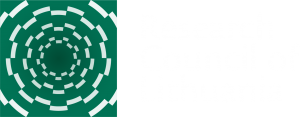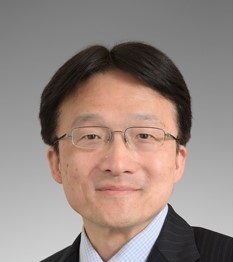Department of Cardiovascular Medicine
The University of Tokyo Graduate School of Medicine, Tokyo, Japan
Pressure overload induces cardiac hypertrophy by activating many molecules such as integrin and angiotensin II type1 receptor, and at first, cardiac function is maintained normal by promoting vascular growth in the heart through hypoxia-inducible factor-1 (Hif-1)-dependent induction of angiogenic factors. Sustained pressure overload, however, induces an accumulation of p53 that inhibits Hif-1 activity and thereby impairs cardiac angiogenesis and systolic function. Through network analysis of single-cardiomyocyte transcriptomes, we have recently identified gene-modules that classify cardiomyocytes and regulate a trajectory of cardiomyocyte remodeling. Upon pressure overload, almost all cardiomyocytes activated mitochondrial ribosome/metabolism modules, whose activity was correlated with the extent of morphological hypertrophy. Sustained stimuli activated DNA damage signaling module including p53 targets in a part of hypertrophy-stage cardiomyocytes, which induced remodeling into failing cardiomyocytes and resulted in heart failure. Comet assay revealed that pressure overload on murine hearts induced single strand breaks in cardiomyocytes and enhanced accumulation of single strand breaks in Xrcc1 deficient mice caused heart failure. We have recently found that heart failure patients with severe DNA damage do not respond to drug treatment and show poor prognosis.
- Zou Y, Komuro I et al. Mechanical stress activates angiotensin II type 1 receptor without the involvement of angiotensin II. Nat Cell Biol 6(6):499-506, 2004.
- Sano M, Komuro I et al. p53-induced inhibition of Hif-1 causes cardiac dysfunction during pressure overload. Nature 446(7134):444-448, 2007.
- Zhu W, Asashima M, Komuro I et al. IGFBP-4 is an inhibitor of canonical Wnt signalling required for cardiogenesis. Nature 454(7202):345-349, 2008.
- Naito AT, Komuro I et al. Complement C1q activates canonical Wnt signaling and promotes aging-related phenotypes. Cell 149(6):1298-1313, 2012.
- Nomura S, Komuro I et al. Cardiomyocyte gene programs encoding morphological and functional signatures in cardiac hypertrophy and failure. Nat Commun. 9:4435-4451, 2018
Dr. Komuro was graduated from The University of Tokyo in 1982 and after clinical residency, he has started research on mechanisms of cardiac hypertrophy and heart failure. He spent 4 years at Harvard Medical School as a postdoctoral fellow and instructor, and was promoted to professor in Medicine, Department of Cardiovascular Science and Medicine, Chiba University Graduate School of Medicine in 2001. He has become a professor and chairman of Cardiovascular Medicine Department, Osaka University Graduate School of Medicine in 2009 and The University of Tokyo Graduate School of Medicine from 2012. He has published more than 900 papers on peer-review journals including Natute, Cell, Nature Medicine, Lancet and Circulation.



